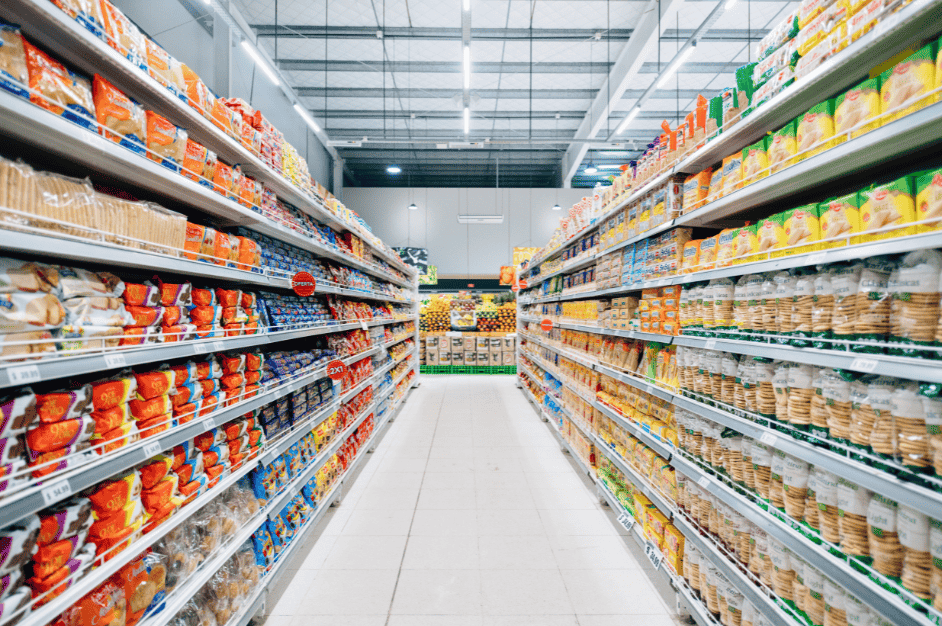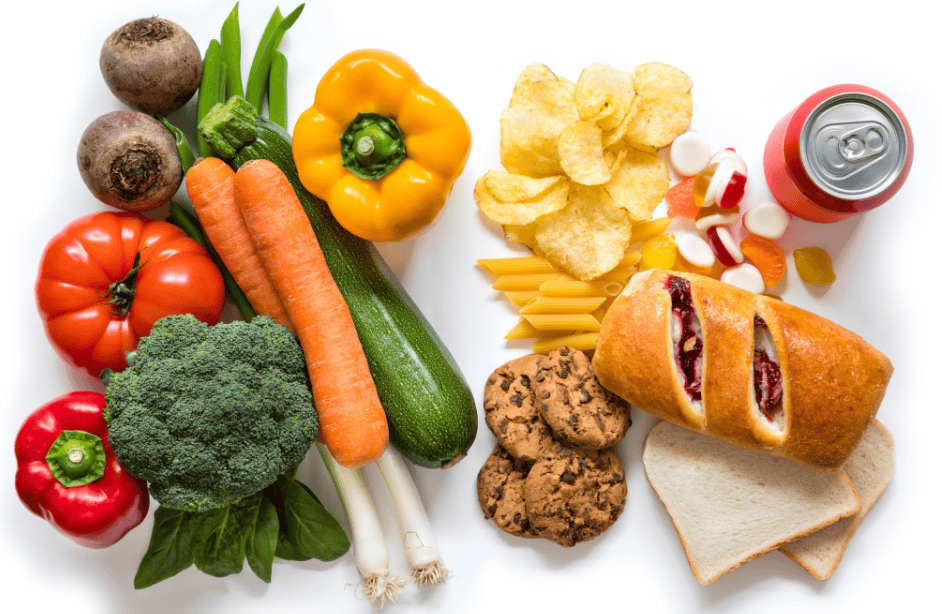Last Updated on: 26th August 2024, 12:55 pm
This article was written by Associate Registered Nutritionist (ANutr) Cherie Ko, and reviewed by Registered Dietitian, Sarah Idakwo.
We’re constantly hearing how ultra-processed foods can wreak havoc on our bodies. But for those struggling with eating disorders, this conversation is far more than just another health trend.
While cutting back on ultra processed foods might appear to be a positive step, it’s essential to consider how this approach might impact someone already dealing with an eating disorder but also how this idea can trigger an unhealthy and unnecessary hyper focus around foods. This article aims to breakdown the impact of restricting ultra processed foods on eating disorders and disordered eating.
Understanding ultra processed foods
Ultra processed foods (UPFs) are formulations typically made from 5 or more ingredients and include food substances not commonly used in culinary preparations to enhance taste, texture, and shelf life of the food product (1).
Many store bought items, including sugary snacks, soft drinks, instant noodles, some ready-to-eat meals, but also products like biscuits, bread, flavoured yoghurts are classified as ultra-processed. While these foods are often vilified in discussions about healthy eating, the reality is that they’re a big part of many people’s lives and can be part of a healthy, balanced lifestyle.

Eating disorders and Ultra Processed Foods
Eating disorders are incredibly complex. They’re not just about food; they’re about emotions, control, and sometimes, a way to cope with life’s challenges.
UPFs and Eating disorder treatment
In eating disorder treatment, the principle of “all foods fit” and ‘there are no good foods or bad foods’ has become central to combating diet culture, to help individuals moving away from restrictive eating patterns and to challenge the eating disorder thoughts (2). This approach emphasises that no food should be off-limits, including UPFs, as the demonisation of foods can contribute to restrictive eating patterns and over-fixation on avoiding “unhealthy” foods.
However, there is a massive dilemma when it comes to UPFs and their role in eating disorders. UPFs, with their high levels of sugars, fats, and additives, are often linked to cycles of cravings and overeating, potentially exacerbating conditions like binge eating disorder. It is noted that behavioural interventions and treatments for disordered eating are starting to study the role of UPFs in sensitising reward-related neural functioning, disrupting metabolic responses, and motivating subsequent UPF cravings and intake (3).
This dynamic can create a challenging environment for those with eating disorders, where both the consumption and avoidance of UPFs can play a significant role in the onset, maintenance, and recovery from eating disorders. It is important to acknowledge that there are two sides to the role of UPFs in one’s diet but also that the impact of keeping or removing UPFs in one diet can vary vastly among people.
Orthorexia and a misguided concept of health
Orthorexia is an unhealthy obsession with eating only “pure” foods, where the pursuit of dietary perfection becomes detrimental to overall well-being. This fixation often involves categorising foods as either “healthy” (pure, clean, organic, natural) or “unhealthy” (processed, artificial, harmful), accompanied by rigid and inflexible eating rules. The result is a heightened preoccupation with food, disordered thoughts focusing on eradication, but also intense feelings of guilt, shame, and anxiety when those rules are broken (4).
One prominent feature of orthorexia features self-imposed dietary rules based on one’s personal current life, dietary trends or cultures. This can lead to excluding whole food groups or food types because one believes that they are not healthy.

While the classification of UPFs include snack based foods, such as crisps and chocolates, it also includes staples in the typical UK diet such as bread, flavoured yoghurts, some deli meats, and certain instant foods.
A typical person may simply avoid or swap these specific foods for other alternatives. However, a person with orthorexia could go to an extreme and decide to eliminate all food types associated with those specific foods from their diet just because they believe the foods are unhealthy and fear they might be impaired by eating them.
This could mean excluding ALL breads, yoghurts, deli meat and instant food regardless of whether they meet the classification of UPFs or not.
This is dangerous as it could contribute to nutritional deficiencies, extreme weight loss and even hormonal disturbances. The widespread media portrayal of UPFs as inherently “unhealthy”, “ dangerous” or “toxic” could thus reinforce these orthorexic tendencies, create a fear-based narrative around UPFs, and also validate the idea that certain food types or groups should be entirely avoided.
The Fear Around UPFs and the “Clean Eating” Parallel
The growing fear around UPFs is beginning to echo the rhetoric of the “clean eating” movement, where unprocessed, whole foods are hailed as the gold standard of health, and anything outside of this is deemed harmful.
UPFs are often depicted as toxic, with sensational headlines and reports suggesting that these foods are not just unhealthy, but dangerous to consume. This portrayal fosters a culture of fear and anxiety, where UPFs are demonised and viewed as something to be entirely avoided.

This fear-mongering approach could lead people to believe that even a bite of an ultra-processed food could have dire consequences. This is highly similar to the anxiety promoted by the “clean eating” movement, where any deviation from “pure” eating was seen as a failure.
In addition, the constant bombardment of warnings against UPFs could make people feel that they are at risk of harming their health if they do decide to have UPFs, which can lead to excessive stress and anxiety around food choices.
Other Considerations with UPFs
UPFs have a big focus on convenience and low cost, which are the very factors that are making them a large part in many diets across the UK, especially among low and middle income households (5). Buying into the concept that a UPF free diet is equivalent to a healthy diet, can make the idea of healthy eating seem out of reach and unattainable.
In addition, the time and cost of making food from scratch or using fresh ingredients only, can put so much pressure on someone with a busy schedule or limited access to cooking facilities. This can make people feel guilty or stressed about the food that they can afford.
Moreover, food is a highly central part of so many social gatherings, and UPFs are often a staple at parties, family dinners, and other events. Choosing to avoid these foods can create feelings of isolation or make social situations more stressful, and have the potential to impact social interactions or relationships.

Conclusion
While there could be potential health benefits to reducing UPFs, it’s crucial to weigh these against other broader factors that can impact one’s diet.
It is important to remember that everyone is different and there are so many complex factors that can influence your food choice but it’s also important to understand that health is complex and the journey to health needs to be more holistic and nuanced and it’s not as simple as reducing it to UPFs. There is no pressure or need to restrict your UPF intake, despite what we are seeing in the media. The key is to first ensure you have a good relationship with food and explore eating a diet that is balanced, nourishing, accessible and brings you joy.
If you wish to explore any anxiety or clarity around ultra processed foods in a neutral and anti-diet culture way, then please book a discovery call here, I will be happy to help.


